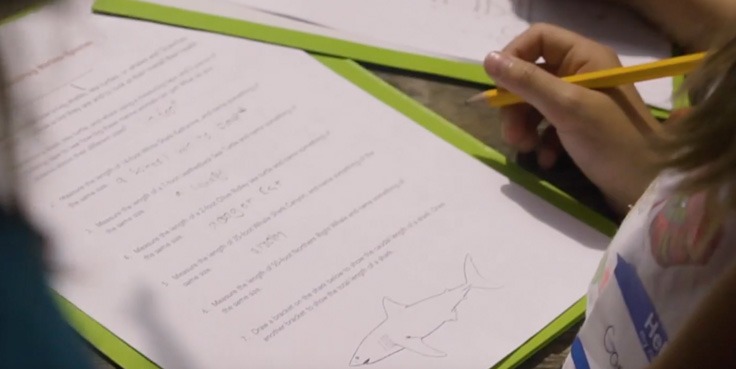What is STEM Education?
S.T.E.M. is an acronym for Science, Technology, Engineering, and Mathematics. STEM education is evolving into an integrative curriculum aimed at preparing students for the challenges of the 21st century. A research-based STEM education program prepares our students to become creative and innovative problem solvers, researchers, engineers, and designers.
Why does OCEARCH think STEM is important for our students?
The integration of engineering and technology within the mathematics and science curriculum makes teaching more meaningful and engaging as well as provides students with skills critical to success in the 21st century. This includes the ability to think critically, solve complex problems, and drive advancements in science and technology.
Is the OCEARCH STEM curriculum accredited?
Yes. The OCEARCH STEM curriculum follows the STEM education initiative and is aligned with Next Generation Science Standards (NGSS). Every lesson relates to the real science conducted aboard the M/V OCEARCH and is made accessible online for free.
Can I change or adapt the lesson plans?
Of course! Each lesson can be tailored to suit a teacher’s specific lesson plan. You can choose from multiple activities such as interactive experiments, writing exercises, worksheets, group projects, or presentations.



